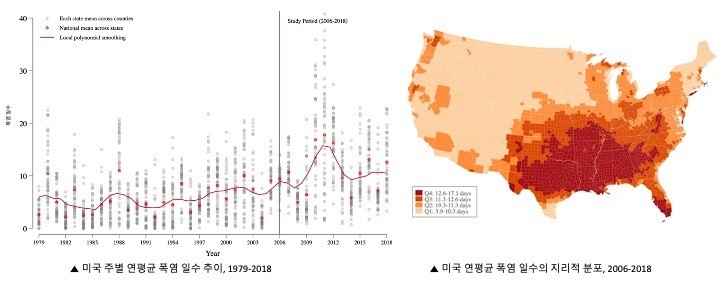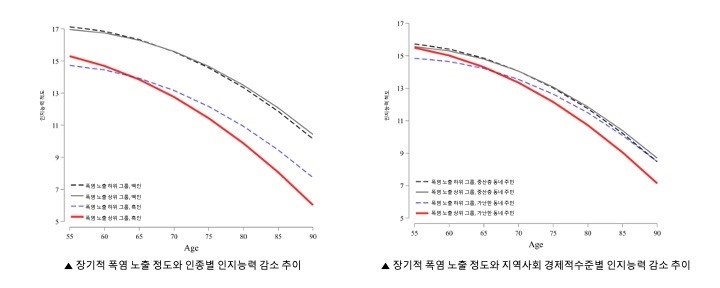Professor Lee Hae-na's research team in the Department of Sociology identifies the negative impact of heat waves
- scola
- Hit1100
- 2023-09-05
Professor Lee Hae-na's research team in the Department of Sociology identifies the negative impact of heat waves on cognitive function in old age
- It has a more deadly effect on the elderly in poor areas than in rich areas
- Presenting a New Convergent Perspective on Sociology in Old Age

▲ (from left) Professor Lee Hae-na of the Department of Sociology, Professor Eunyoung Choi of New York University, and Professor Virginia Chang of New York University
Professor Lee Hae-na's research team in the Department of Sociology announced the results of a study that long-term exposure to heat waves can affect the cognitive function of the elderly using big data from the U.S. heat wave. In particular, the heat wave has a greater impact on the elderly and black elderly in poor areas, and this revealed that the heat wave can act as an "unequal disaster" for the socially vulnerable.
On July 3, 2023, the average global temperature hit an all-time high. The combined effects of global warming and renewed El Nino have pushed the average temperature above 17 degrees Celsius. As a result of the climate crisis, the intensity and frequency of heat waves are increasing, and the invisible damage caused by them is also increasing. Heat waves are particularly disastrous for the elderly, low-income, and poor, but most studies have focused on the relationship between heat waves, mortality, and hospitalization rates, and lack information on the long-term effects of extreme heat on cognitive function in old age.
Professor Lee Hae-na's research team analyzed about 9,500 elderly people aged 51 or older by combining big data on heat waves collected from 1979 by the U.S. Centers for Disease Control and Prevention with the Health and Retirement Study (2006-2018).

As a result, it was found that the heat wave did not have the same negative effect on all the elderly, but the risk of heat waves was concentrated on the elderly and black elderly living in poor neighborhoods. In other words, residents in poor areas quickly deteriorated their cognitive abilities when exposed to long-term heat waves, but no such association was found in the elderly in rich areas. Similarly, cognitive decline occurred when black seniors were exposed to heat waves, but no such relevance was found in white or Hispanic seniors.

This study is meaningful in that it derived the diversification of heat wave and elderly health research by analyzing the heat wave vulnerable in-depth. By combining environmental big data with the U.S. National Senior Panel Survey, we overcame the limitations of previous studies limited to specific hospitals or regions and presented a new convergent perspective on old sociology.
This study was conducted in collaboration with Professor Virginia Chang, a post-doctoral researcher at the University of New York International School of Public Health, and the results were published in the Journal of Epidemiology and Community Health (IF: 6; 8%) of the British Medical Journal.
○ The name of the thesis: Cumulative exposure to extreme heat and trajectories of cognitive decline among older adults in the USA
○ Journal: Journal of Epidemiology and Community Health
○ Author: Lee Hae-na (co-author), Eunyoung Choi (co-author), Virginia Chang (co-author)
○ DOI: http://dx.doi.org/10.1136/jech-2023-220675



